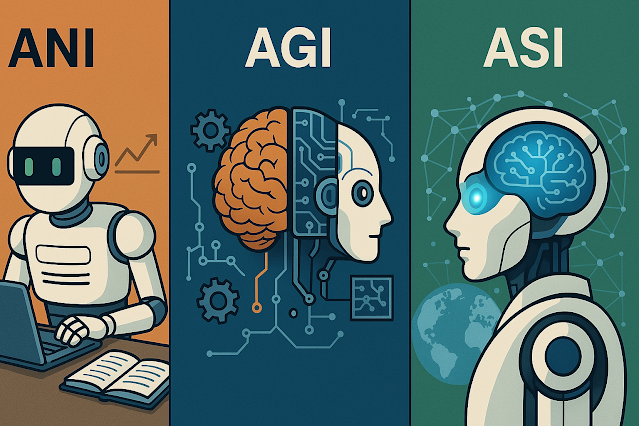Imagine opening a website and having a helpful assistant right next to you – someone who reads what you’re looking at, helps you understand it, fills forms, and even remembers what you like. That is exactly what ChatGPT Atlas offers.
What Is ChatGPT Atlas?
ChatGPT Atlas is a web browser built by OpenAI where the famous chatbot (ChatGPT) is not just a separate tab, but at the heart of your browsing experience. When you browse with Atlas:
- The browser uses the same core engine as popular browsers (so it feels familiar).
- It allows you to open any webpage and talk with ChatGPT about what’s on the page – ask questions like “Explain this simply”, “Summarise this article”, or “Help me rewrite this text”.
- It saves your browsing context (if you allow) so it can remember what you did and help you later.
In short: instead of a regular browser + a separate chat, you get a combined smart browser + assistant.
Why This Is Different From Regular Browsers
Let’s compare what you do with a usual browser vs what you can do with Atlas:
Normal Browser (e.g., Chrome, Edge)
- You open a page, read it, maybe copy-text or switch to a chat bot for explanation.
- You fill out forms manually, write emails or posts separately.
- You don’t have an assistant that knows what you were looking at and what you asked earlier.
- You use separate tabs or tools for writing, summarising, rewriting.
ChatGPT Atlas
- You open a page and immediately ask: “What does this mean?”, “Give me 3-line summary”, all inside the same page.
- You highlight text and ask ChatGPT to rewrite or polish it for you.
- You fill forms with assistance: chat helps you craft answers or check your content.
- The assistant remembers your past work (optional) and can bring it up later – so your browsing becomes more personalised.
- Some tasks can be automated: for example, Agent Mode lets ChatGPT perform actions on websites (on behalf of you) like researching, comparing, filling data (for now in preview).
If you are a content creator or someone doing research (which you are), this means fewer context-switches and more productivity.
Key Features of ChatGPT Atlas
Here are some of the standout features (and how they help everyday users):
Sidebar Chat Assistant
On any webpage you visit, you can open a chat panel (sidebar) and ask questions about what you’re looking at: “What is this paragraph saying?” or “Rewrite this for a blog audience”. This saves you copying text back and forth.
Browser Memories
If you choose, Atlas can remember your browsing context – for example the websites you visited, what you asked, what you were working on. Later it can refer back to that to help you start where you left off. You remain in control: you can view or clear what is remembered.
Agent Mode (Task Automation)
For users on paid plans: ChatGPT inside Atlas can perform tasks for you on the web. For example, it might research multiple websites, compare products or even fill in a form.
Integrated Workflows
Because the assistant is built into the browser, you don’t continually switch between browsing → search engine → chatbot → document. It all happens in one place. This helps you focus, especially when doing content writing, research, or studying.
Privacy & Control
Atlas emphasises that your browsing data is not automatically used to train AI models, unless you choose. You can turn off the memory feature. Incognito mode, full privacy controls are built in.
What the User Experience Looks Like
Here’s a simplified walk-through for a typical use:
- You open Atlas and go to a website about “How autonomous driving works”.
- You highlight a paragraph: “Thermal sensors in the vehicle detect obstacles…”
- You chat: “Explain this in non-technical English for my blog readers.”
- The assistant replies: “It means the car uses heat-sensing cameras to spot things around it and avoid crashes.”
- You then ask: “Give me three sub-headings for a blog post on this topic.”
- Later you ask: “Based on these notes, write a quick blog summary of 200 words.”
You are done – all without switching to another tool.
Who Can Use It & Are There Any Restrictions?
Availability
Atlas launched globally on macOS for users of ChatGPT Free, Plus, Pro and Go plans. Versions for Windows, iOS, and Android are coming soon.
Access & Restrictions
Anyone with a ChatGPT account can download and use Atlas on supported platforms. The full advanced features, like Agent Mode, are reserved for users on paid plans (Plus, Pro, Business). Your country/region may affect availability of certain subscription plans (for example localised tiers).
Pricing / Plans
Using the browser itself is free for entry-level functionality if you are on the free ChatGPT account. Paid levels unlock more advanced features (higher limits, Agent Mode, deeper memory). For ChatGPT in general: Plus, Pro, Business tiers exist. In India, for example, OpenAI launched a “Go” tier at ₹399/month (~$5 USD) for added features (though this may not yet apply globally).
So for a non-tech user: you could start with the free version, try the basic assistant features in Atlas, if you like it and want more help & automation, upgrade.
How AI Browsing Could Change the Future
The introduction of a browser like ChatGPT Atlas signals a shift in how we use the web. Here are some ways the future might change:
From “search then read” to “ask then act”
Instead of you doing a search → reading links → switching between tools, you will ask questions directly inside the page and get help immediately. That shortens the loop significantly.
Better productivity for creators, students and professionals
If you are writing content (blog posts, reports), studying new topics, doing research – AI-powered browsing speeds things up, helps you understand complicated topics simply, and gives you shortcuts. For your role as a software developer and content creator, this means less time jumping between tabs and more time doing creative work (writing, analysing, building).
More personalization & context awareness
As assistants remember what you’re doing, the experience gets more tailored. For example, you ask for help with your “automotive embedded systems blog” and the browser remembers your tone, your target audience, your preferred style. This kind of personalized assistant embedded in your workflow could become the norm.
Accessible tools for everyone
Users from non-technical backgrounds gain an easier entry into complex topics. They don’t need to know how to search perfectly, they just ask in plain English and the assistant helps. This means the web becomes more inclusive.
New business & content models
With faster content creation, summarising, rewriting and automation, creators can generate more, test ideas faster, and maybe build side‐income quickly. AI browsing could support affiliate marketing, faster research, quick drafts, and better monetised outputs.
Privacy & trust evolution
As AI becomes embedded in browsers, privacy, transparency, user control become more critical. Browsers of the future will likely give more visible controls and clarity about what the AI can and cannot do. Atlas already points in this direction.
Summary: What You Should Take Away
- ChatGPT Atlas is not just another browser – it’s a browser with AI built in, helping you every step of browsing, writing, researching and learning.
- For non-technical users this means easier access: no complicated tasks, just ask and get assistance.
- It offers a familiar browsing interface but adds smart features like chat sidebar, memory, task automation.
- You can start free and upgrade if you need more power.
- The browser is currently available on macOS, other platforms will follow soon.
- The future of browsing is shifting from passive reading towards active assistance – your browser becomes your workflow partner.
Try It Yourself
And if you’re a blogger or creator, consider writing about your experience: how did your productivity change? What new ideas did you get? Sharing that can help others too.

